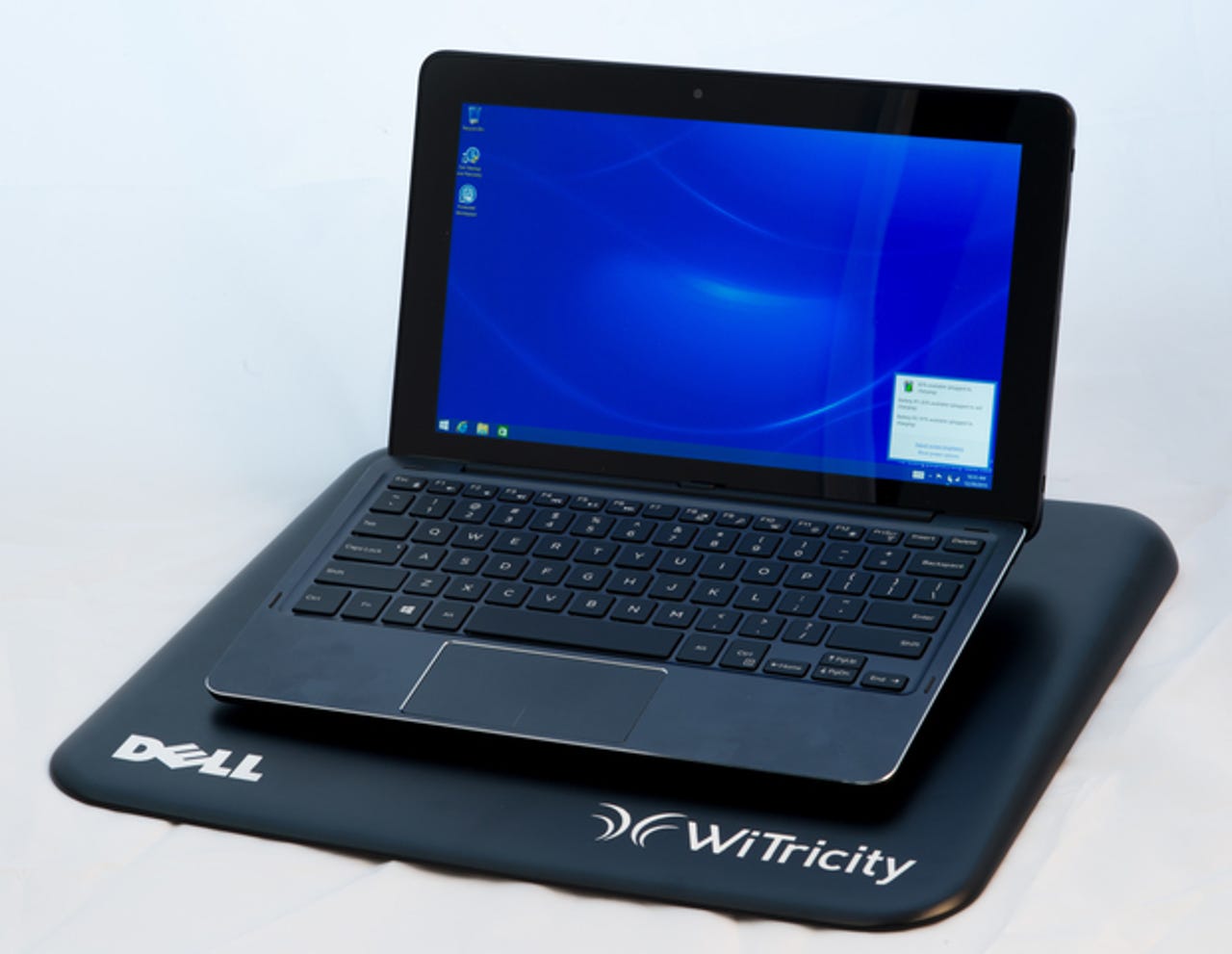Dell readies laptops with wireless charging while Intel retreats from its development


WiTricity's wireless charging pad for Dell laptops.
The future of wireless charging for laptops got a little more confusing over this past week, as leading companies sent opposing signals (no pun intended) about the technology's viability in a changing PC environment.
Smartphones
Wireless charging company WiTricity showcased Dell laptops using its charging mat last week at the Computex trade show, but just a few days later Intel signaled a retreat from its efforts when four of its executives resigned from the AirFuel Alliance trade group that is working on wireless charging solutions.
Wireless charging seems like a key breakthrough for mobile devices of all kinds, but despite public pronouncements and untold resources thrown at it, the technology is still in something of a purgatory. For every Android smartphone capable of being charged without cables, there's an iPhone that natively can't.
Intel touted its efforts to remove cable clutter from the charging process as recently as last year, but the continued decline in PC sales has forced the chip giant to realign its business strategy as smaller mobile devices and cloud computing have surged. Part of that realignment seems to include Intel abandoning wireless charging initiatives, according to the AirFuel resignation letters from its execs.
Requiring less juice to recharge, smartphones are the obvious emphasis for wireless charging innovation, but WiTricity's showcase using Dell notebooks indicates that it has a working solution for powering up more demanding laptops. WiTricity told our sister site CNET that its charging mat was transmitting 30W of power to the laptop, probably the minimum required to juice up its battery.
As encouraging as WiTricity's demonstration might have been, there's no timeline it was willing to disclose for when Dell would start offering laptops that could be charged wirelessly. Intel's decision to step away from developing the technology is the latest blow to its commercial success, which has suffered due to differing standards from competing trade groups as well as legal wrangling.
As long as it's safe and effective, wireless charging remains a killer feature users would love to have. This week's developments continue the industry's lurching toward providing consumers with that feature, seemingly stumbling two steps back for every step forward it takes.